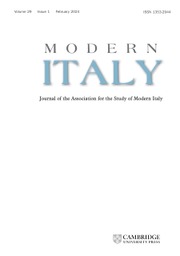Networks and Institutions in Europe's Emerging Markets
Do ties between political parties and businesses harm or benefit the development of market institutions? The post-communist transition offers an unparalleled opportunity to explore when and how networks linking the polity and the economy support the development of functional institutions. A quantitative and qualitative analysis covering eleven post-socialist countries combined with detailed case studies of Bulgaria, Poland and Romania documents how the most successful post-communist countries are those in which dense networks link politicians and businesspeople, as long as politicians are constrained by intense political competition. This combination allowed Poland to emerge with stable institutions while Bulgaria demonstrates that in developing economies intense political competition alone is harmful in the absence of dense personal and ownership networks. Indeed, as Romania illustrates, networks are so critical that their weakness is not mitigated even by low political competition. This title is available as Open Access on Cambridge Books Online and via Knowledge Unlatched.
- Proposes a new understanding of post-communist economic and political development, arguing that the success stories are those countries where networks between parties and business have been allowed to thrive but their use limited by democratic political competition
- Demonstrates how the structure of property ownership in a country (largely overlooked as a factor that impacts politics) affects political organisation of business
- Draws on over 150 interviews conducted with top public officials and key actors in the economic transformation during extensive international fieldwork, supporting and enriching the interpretation of data in the book
- This title is also available as Open Access on Cambridge Books Online and via Knowledge Unlatched
Reviews & endorsements
"Roger Schoenman’s book transforms the well-known adage of the police investigator to "follow the money" to "follow the links" from one associate to the next. The irony of the so-called market reforms is that they provided the opportunity for entrepreneurs who realized the value of connections of old networks to create a new political and economic elite class. This reality was not, and is not, always pretty. Schoenman's analysis explains why some countries succeeded and others failed. It is a rich and analytical study that breaks away from the emphasis on macro-institutions to explain how countries are built bottom up."
Bruce Kogut, Sanford C. Bernstein Professor, Columbia University
"Roger Schoenman’s remarkable new book dives deeply into the fascinating (and often sordid) world of business and party linkages in emerging Europe. He explains why and when the mutual self-dealing of the oligarchs and the party elites can have broadly beneficial results, and he explains the dire consequences when one side or the other gets the upper hand for good."
Wade Jacoby, Mary Lou Fulton Professor of Political Science, Brigham Young University
Product details
December 2015Paperback
9781316502860
246 pages
230 × 152 × 15 mm
0.37kg
26 b/w illus. 15 tables
Available
Table of Contents
- Introduction
- Part I. Foundations:
- 1. Approaches to institution building
- Part II. The Role of Networks:
- 2. When broad networks increase cooperation
- 3. Tracing ownership networks
- Part III. The Role of Uncertainty:
- 4. When uncertainty increases cooperation
- 5. Tracing elite career networks
- Part IV. Bringing It Together:
- 6. Institutional development in new democracies
- 7. Conclusion: political varieties of capitalism in emerging markets.







